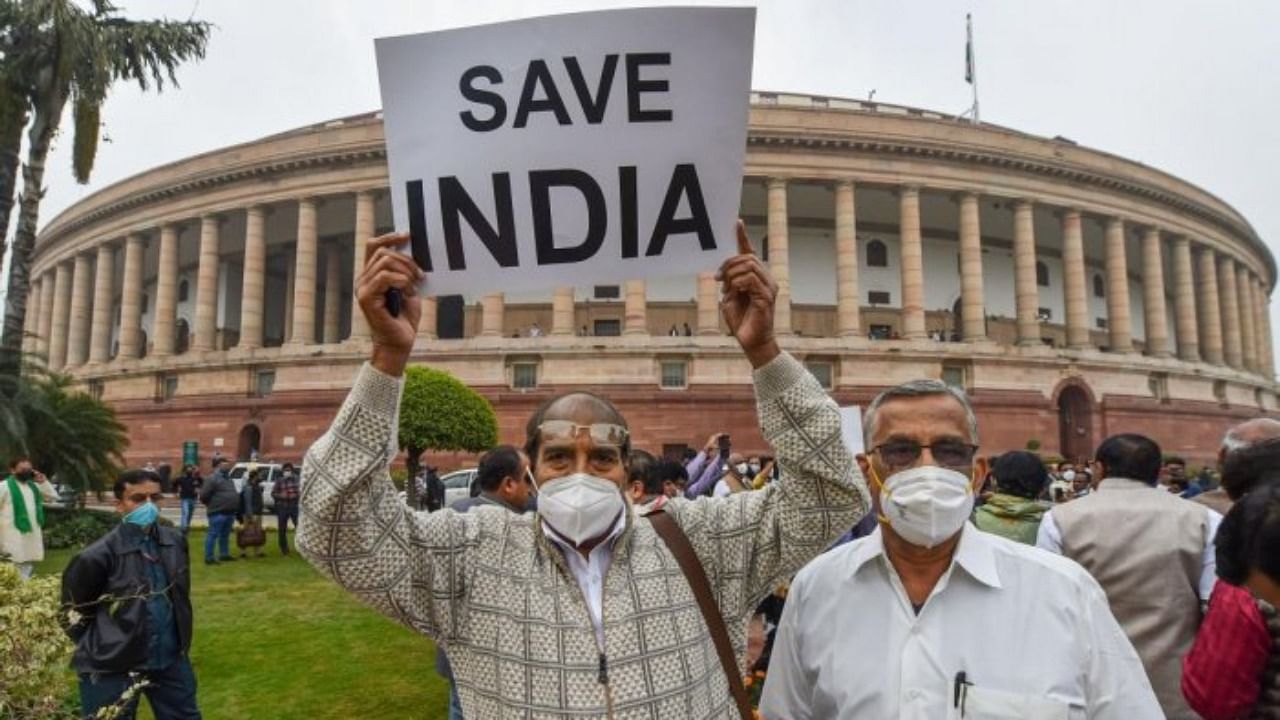
The suspension of 12 Opposition MPs from the Rajya Sabha for the duration of the Winter Session was unfair and unreasonable, and the reasons cited for the drastic action are inadequate and unconvincing. The MPs were suspended for their alleged unruly conduct on the last day of the monsoon session in August when marshals were called after Opposition members stormed the well of the House during the passage of a bill. The government proposed suspension of the members under Rule 256 of Rules of Procedure for unruly conduct and for lowering the dignity of the House. Chairman Venkaiah Naidu has stuck to the decision as, according to him, the members have shown no remorse for their conduct. Opposition parties have condemned the decision as undemocratic and unprecedented, and violative of rules and procedures. They have also called it an arbitrary action because the versions of the suspended members were not called for.
It is pointed out that Rule 256 could only be invoked in an ongoing session and cannot be used for taking action against members for their past conduct. There are other violations of procedure, too. Rule 256 is not frequently used, and it cannot be claimed that the actions of the MPs, though not right, were so uncommon as to invite such a drastic response. Parliament has seen much worse and more shameful scenes and members of the ruling party too have figured in them in the past. The Opposition has also said that the government’s action is selective as some were targeted and others were spared. It is pointed out that a Sikh MP who was as disruptive as others was spared because the government did not want to be seen as taking action against a Sikh before the elections in Punjab.
The Opposition thinks that the government took a deliberate decision to suspend the MPs because that would make it easy for it to get its legislative business done in the Rajya Sabha where it does not have a majority. If that is true, that is bad intent and is against the basic principles and practice of parliamentary democracy. An important norm in parliamentary practice is that it is the government’s duty to ensure that the business of the House is conducted in an orderly manner. The Opposition had a real and genuine grouse that the government was not responsive to it and did not accept its legitimate demands for discussions on many important issues. It is unfortunate if the Opposition is pushed into provocation and then punished. The attack on the Opposition is of a piece with the attacks on criticism and dissent that is seen in politics and in wider society. It shrinks and diminishes democracy.